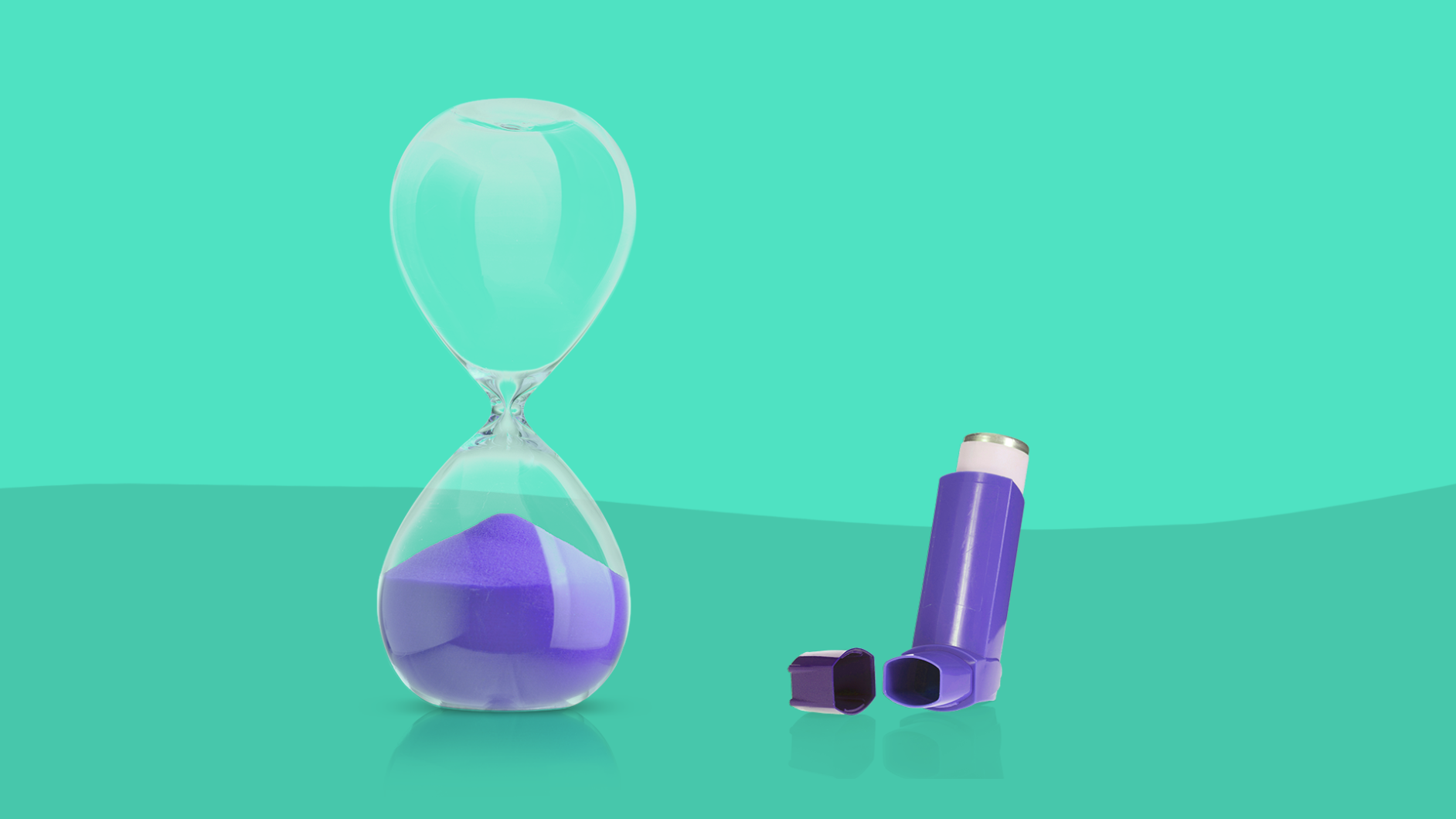Key takeaways
Medications, including inhalers, have expiration dates after which their potency and safety cannot be guaranteed due to potential chemical changes.
Inhalers have multiple expiration dates to consider, and although using an expired inhaler is unlikely to cause health issues, its effectiveness may be reduced, posing risks during a serious asthma attack.
Proper storage of inhalers at room temperature and away from extreme conditions is crucial to maintain their effectiveness up until the expiration date.
Expired inhalers should be considered hazardous waste and not disposed of with normal garbage, with disposal options including returning them to a pharmacy or a hazardous waste facility.
Sell by, expiration, best by—the number of dates to consider when making purchases can be overwhelming. You know you don’t want to consume food that is past its prime. But do you need to worry about the freshness of medication and medical items like inhalers? The general answer is yes.
All prescriptions come with an expiration date. If you use medicine after that day, it can be a gamble; typically, a drug’s expiration date is when the active ingredient has lost 10% of its potency. Though drug manufacturers err on the side of caution to ensure that a medication is effective its whole shelf life, after that date, potency and safety can’t be guaranteed, as the chemical components of the drug may change. For expired inhalers, specifically, the same rules apply.
Inhalers actually have a couple expiration dates to go by: one on the label (generally one year), one on the box, and one on the package information inside the box. For example, on a Combivent Respimat, the expiration date on the pharmacy label will likely have a date that’s one year from the day the prescription is filled, but once you assemble the inhaler, the expiration date becomes three months. Be sure to ask your pharmacist if you need help determining the expiration date for your specific inhaler. You can also check out this helpful list of popular inhalers with notes about expiration dates.
Is it dangerous to use expired inhalers?
Inhalers are probably safe after the expiration date, which is usually one year after it was issued, but are likely to be less effective. This goes for inhalers across the board, including expired albuterol (brand names: Proair HFA, Ventolin HFA, and Proventil HFA) and expired Symbicort (budesonide and formoterol). Although using an expired inhaler is unlikely to cause any other health problems, the loss of efficacy could be risky if you’re having a serious asthma attack.
Ultimately, it’s best that you avoid using an expired inhaler. However, if you’re having an asthma attack and an expired inhaler is all that’s in arm’s reach, go ahead and try it—and then get yourself a new one as soon as possible! “An expired inhaler is probably going to be fine in an emergency, but don’t make a habit of it,” advises Rachel Trippett, MD, a family physician with the U.S. Public Health Service Indian Hospital in New Mexico.
It’s also a good idea to take stock of the inhalers you currently have lying around at home, work, or your child’s school, and note the expiration dates. Going forward, it may be helpful to add a reminder to your calendar each time you get a new inhaler, so that you remember to replace it before the expiration date.
RELATED: How to get a handle on your asthma when it’s so cold out
How to store inhalers
Though expiration dates impact how effective inhalers are, so does the way you store them. According to the National Institutes of Health, you should keep your inhaler dry and store it at room temperature. Keep it away from extreme cold or heat, which can affect how well it works or even cause the inhaler, which is under pressure, to explode. You’ll also want to ensure the inhaler is kept away from anything sharp, which could puncture the can.
How to get rid of expired inhalers
When it’s time to dispose of your expired inhaler, it’s important to note that inhalers are technically considered hazardous waste. Because they can explode when punctured or incinerated, as is likely to happen during trash collection, it’s not recommended that you throw out inhalers with your normal garbage.
So how do you get rid of one? First, read the canister to see if it comes with any specific disposal instructions. If not, you can contact a local pharmacy to see if it collects inhalers, or you can drop it off at a hazardous waste facility yourself—you may want to wait and collect a few inhalers to dispose of at the same time. In some locations, you can put the plastic casing out with your recycling. When you’re ready to replace your used or expired inhalers, be sure to check singlecare.com for the best possible price.



